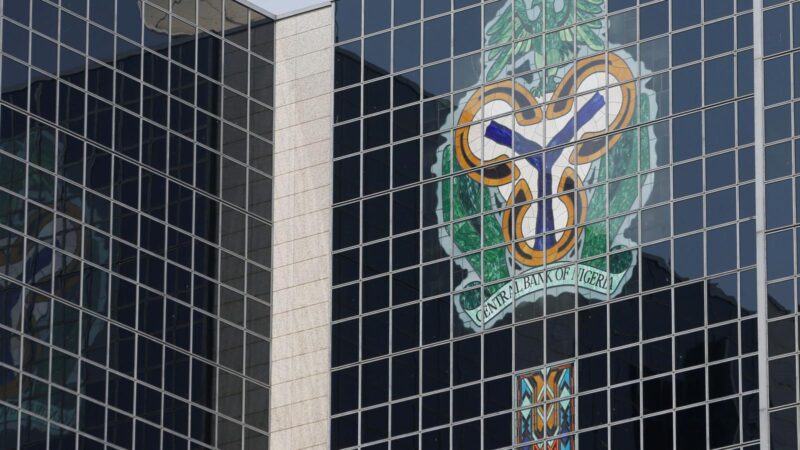In response to growing concerns over arbitrary deductions and questionable charges by Nigerian banks, the Central Bank of Nigeria (CBN) has reiterated its stance on protecting consumers.
Mohammed Muazu, Head of the Complaint Management Division in the Consumer Protection Department of the CBN, has called on customers to report any illegal or unwarranted bank charges, emphasizing the importance of being proactive in understanding and managing personal bank accounts.
Muazu’s statement comes at a time when many Nigerians have expressed frustration over exorbitant and seemingly unexplainable deductions from their bank accounts. He encouraged customers to familiarize themselves with the CBN’s Guide to Bank Charges, a document that outlines how much banks are legally allowed to charge for various services. According to Muazu, awareness and vigilance are essential for consumers to safeguard their finances.
Understanding Your Bank Charges
Muazu stressed the importance of thoroughly reviewing bank statements, which are now commonly sent electronically, in order to identify any discrepancies between CBN guidelines and actual deductions.
“If your bank charges you more than what is in the CBN guideline, you have the right to say no. Let us try to know our rights. Most customers do not even review their statements when their bank sends them. Review your account statement every month and if you see what you do not understand, complain. Do not sleep on what you do not understand. CBN is not your first line of defense, we only listen to escalated complaints,” Muazu said.
In his view, many consumers fail to monitor their accounts regularly, thus allowing questionable charges to persist. This lack of awareness has made it easier for banks to charge fees that often go unnoticed or unchallenged.
Muazu also urged bank customers to ensure they understand any new banking products they sign up for. He explained that banks often market services that appear appealing but might include hidden costs or terms that are not in the customer’s best interest.
Several Nigerian bank customers have shared their dissatisfaction with these growing bank charges. Many feel trapped in a system where they are consistently being debited for services they didn’t fully understand or authorize.
Mrs. Helen Agodo, a customer with First Bank Plc, described her ordeal: “I do not blame some people who decide not to put their money in a bank. There was a day I calculated the debit alert charges that I received from my bank. it was up to N1,000 just for one day. You can imagine how much they would make if they did the same to 1,000 or 2,000 other customers.”
Agodo’s concern was echoed by others, who pointed out that their banks frequently deduct small amounts for services that are poorly explained.
Miss Cheta Ugochukwu, a customer of Guaranty Trust Bank (GTB), shared her frustration over recurring deductions. “The charges are getting too much, and the worst part is that it’s every midnight when you get the alert,” she said. According to Ugochukwu, these deductions occur regularly, often without any logical explanation. She highlighted the recurring Telco fee of N6.98, which is applied even when she makes fewer transactions than the number of charges she receives.
“Most times, I can get the N6.98 Telco fee from my bank like 10 times in a day, but I only did three online transactions. I wonder how they calculate this because it is unfair, given the current state of the economy,” she lamented.
Many customers are unsure of the steps they should take when they suspect they have been wrongly charged. While the CBN provides avenues for escalation, Muazu explained that bank customers should first report any irregularities directly to their bank.
“CBN is not your first line of defense,” he reiterated. Customers are encouraged to escalate their complaints to the CBN only after attempting to resolve the issue with their bank. The CBN is keen to assist those who feel their rights have been violated but wants customers to give their banks an opportunity to correct any errors first.
Muazu also recommended that customers frequently check their account activity and thoroughly understand the terms and conditions of any financial product they subscribe to. This includes understanding transaction fees, account maintenance charges, and the cost of services like SMS alerts or online banking.
Despite the guidelines provided by the CBN, some bank officials have said that their institutions comply with the central bank’s directives. A bank representative, who requested anonymity, said that their bank charged customers in line with CBN guidelines but acknowledged that not every customer is aware of these regulations.
“Customers need to be more vigilant. We charge according to the rules, but if anyone feels there’s an error, they should let us know,” the official said. However, this hasn’t stopped the wave of complaints from disgruntled customers who feel they’re being short-changed by an overly aggressive banking system.
While the CBN has offered guidance on reporting unfair charges, the onus is also on Nigerian banks to operate more transparently. With growing public frustration, banks may need to review their customer communication practices and ensure that consumers fully understand their charges.
For Nigerian bank customers, the message from the CBN is clear: knowledge is power. By taking the time to study their statements and understand the terms of their banking products, they can protect themselves from unnecessary financial losses.










Join our Channel...